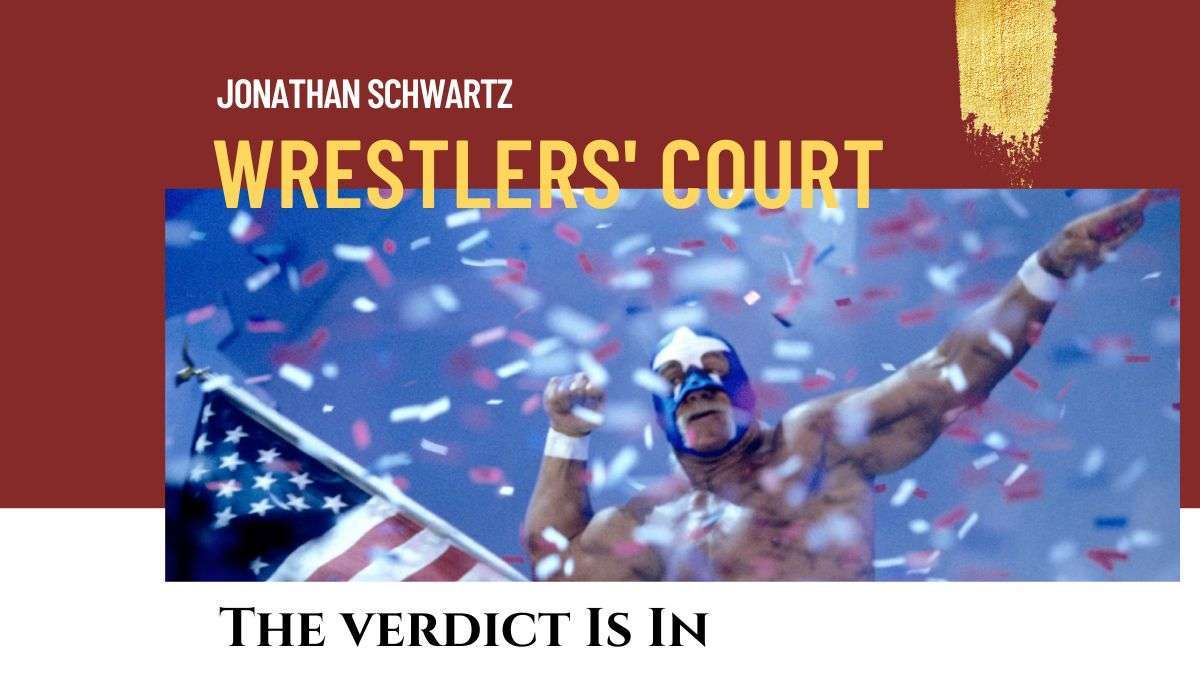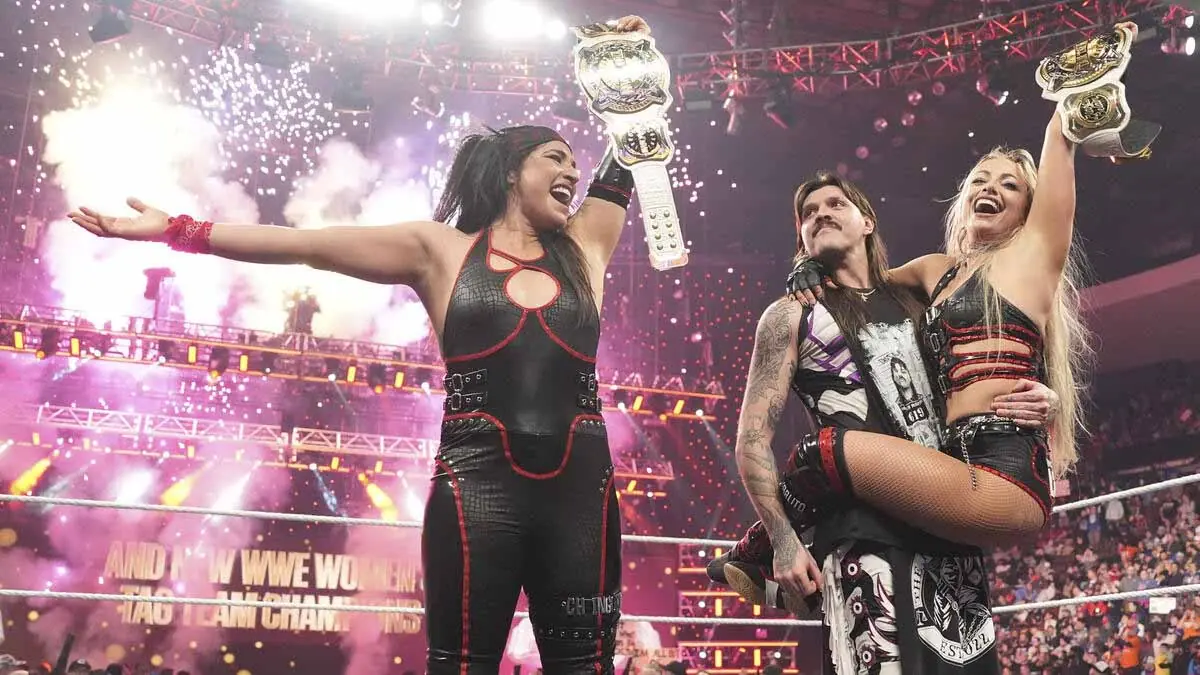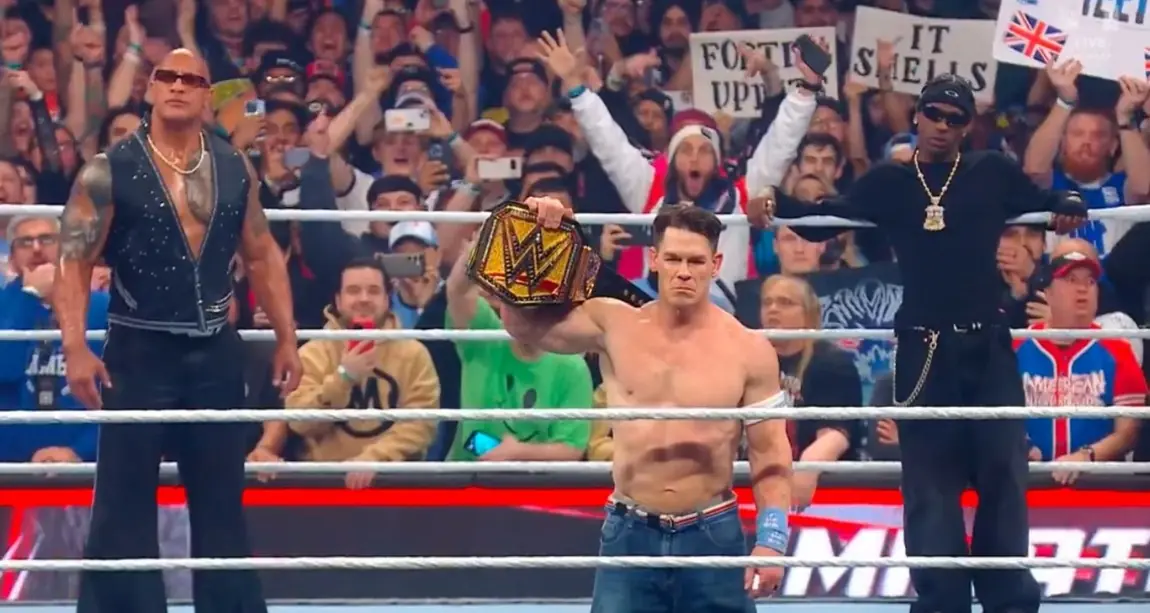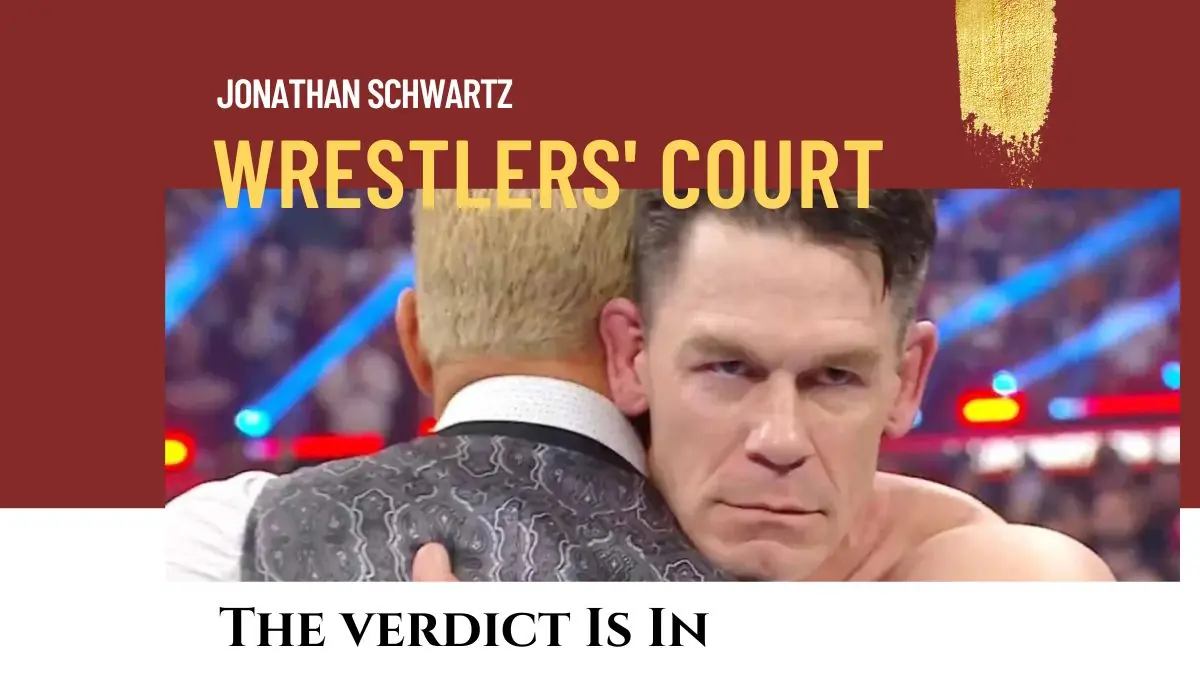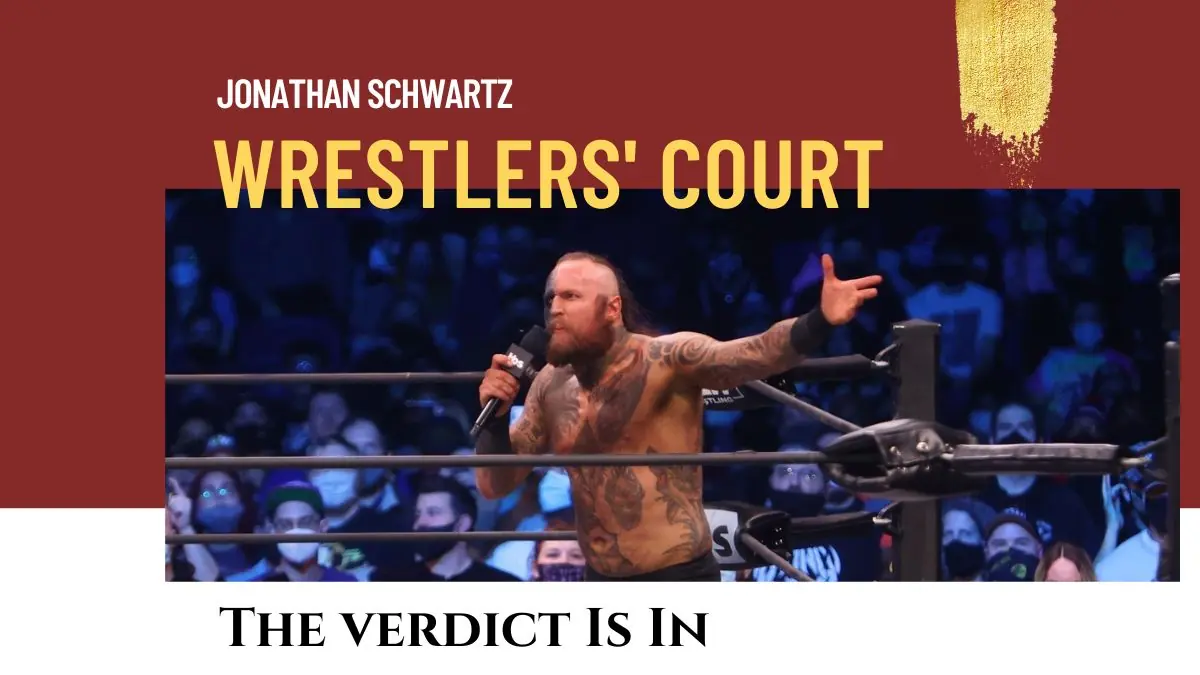In my last column, I wrote about the hostile response that Hulk Hogan received on the January 6 edition of Monday Night Raw. I was equally intrigued by the internet blowback to that reaction.
At this point, Hogan clearly has his supporters and detractors, both of whom are vocal.
In pro wrestling vocal often translates into money if an appropriate storyline can be advanced around the crowd’s reaction.
Since Hogan appeared on RAW, discussion has shifted away from the audience’s divided response and towards the likelihood of leveraging that response into a “last ride” of sorts — another run for Hogan. That subject requires consideration of what would have to happen for Hogan and the WWE Universe to move forward.

Forgiveness can be a very personal thing. Last time out I noted that Hogan’s fans think the Los Angeles crowd should have forgiven Hogan and honored him. I respectfully disagree with assertions that audiences should just “get over” Hogan’s comments. If you’re not part of the community he targeted it’s not your place to insist otherwise.
Mark Henry, who has been openly critical of Hogan, offered to go on a tour of Historically Black Colleges and law schools with him to help the Hulkster make amends. Hogan turned him down.
Incredibly, Hogan’s defenders have since attacked Henry for singling out Hogan’s racism while not speaking out about other groups, accusing him of having an “agenda.”
We are all more than one thing, and certainly more than our worst moments. That doesn’t change the need to take responsibility when we show our worst selves, or the fact that sometimes we say or do things that cannot be unsaid or undone. For public figures this need also applies to actions that aren’t meant for public consumption.
Actor and Director Mel Gibson made many hateful remarks publicly and privately. As far back as 1991 the Gay & Lesbian Alliance Against Defamation cited derogatory comments Gibson made about gay people. He finally walked them back in 1999. In July 2006, Gibson made a series of terribly antisemitic remarks while being arrested for driving under the influence. This outburst was reported in 2011. He apologized in an interview with Diane Sawyer and asked to meet with leaders from the Jewish community to make amends. Actress Winona Ryder, who is Jewish, relayed a story about further homophobic and antisemitic comments Gibson made at a party. In July 2010, Gibson was recorded threatening his former partner using language like Hogan’s. He later pleaded no contest to a misdemeanor battery charge.
For years, Gibson was reportedly blacklisted for his homophobic, misogynistic, racist and antisemitic comments. He has worked more steadily since 2016, directing the movie Hacksaw Ridge and appearing in movies as varied as Machete Kills,The Expendables 3 and Daddy’s Home 2, plus larger roles in less commercial projects. Like many aging action stars he has found a home on streaming services where once he would have been consigned to the straight-to-video bin.
Actor Joshua Malina, among others, is incredulous that Gibson continues to find studios and actors who will work with him. Andrew Garfield, whom Gibson directed in Hacksaw Ridge and who identifies as Jewish, has argued that enough time has passed and contrition has been displayed to support his comeback. Robert Downey, Jr., who also identifies as Jewish, has advocated for Gibson’s return to Hollywood. He also credits Gibson with his sobriety; Gibson helped get Downey into recovery from a serious substance abuse problem and was one of the first to hire Downey after he was written off by studios.
Spider-Man and Iron Man know Gibson better professionally and certainly personally than I do. I hope that Gibson has learned from his multiple mistakes and commits to doing better. He can do so without me buying a ticket to his next film or watching it on TV. I’m happy to devote my time and energy to people who are fine with my existence, whatever our differences may be. I don’t begrudge people for watching Apocalypto or the Passion of the Christ (or its proposed sequel, which I can only hope is a musical like the second Joker movie) but I admit, I wonder whether they’re just willing to take Gibson’s various apologies at face value, they don’t see his comments as problematic, or they share his hateful views.
So I would like to think I understand booing Hulk Hogan in 2025. And I don’t think its anyone’s place to tell someone to “get over” a smear directed at their community. More broadly, I think the pro wrestling audience is tired of Hogan’s shenanigans, disappointed that their former hero has let them down on many fronts, and embarrassed that one of pro wrestling’s most visible ambassadors continues to conduct himself as a fool. Wrestling’s mainstream reputation has never been terribly positive. Hogan’s appearances don’t help.
As to politics, Hogan is hardly the first celebrity to court a more conservative audience as his mainstream popularity has waned. Singers like Kanye West, Kid Rock and Ted Nugent, actors like James Woods, Kevin Sorbo and Dean Cain, comedians like Dennis Miller, Tim Allen and Rob Schneider, and even politicians like former US Vice President Dan Quayle (during his 2000 Presidential Campaign) have all come out as arch-Conservatives later in their careers. Most recently actor Zachary Levi announced his support for Donald Trump after his second Shazam movie tanked.
These shifts Rightward often come with a side of Evangelism — as Hogan showed in a recent appearance on The 700 Club. To be fair, Hogan has made his faith part of his public persona since the 1980s. In his first WWE sanctioned autobiography, he claimed that he would often try to minister to dying children he visited as part of the Make-a-Wish program.
But I digress.
In some cases, I’m sure these performers are living their truths. In others, I see a cynical play to retain a measure of fame and keep working — better to have a divided audience than no audience at all. These pronouncements tend to come as shots across an imagined liberal bow. The celebrity announces his or her need to be faithful to his or her core beliefs, even if it means limited employment prospects and a diminished fanbase going forward: in reality, they’ve already lost their appeal and pivot to find a way to stay relevant, at least in some circles.

So what is Hogan’s path forward?
Before Los Angeles booed him out of the building, internet chatter spiked over Hogan’s (and Vince McMahon’s) absence from the hype for the returning Saturday Night’s Main Event. In its original run SNME was a house built by Hogan and McMahon. WWE promoted the new version by leaning into 1980s nostalgia, recycling the show’s old theme music and bringing back Jesse “The Body” Ventura as a color commentator, complete with python jacket.
Ventura was a highlight, still effective at guiding the audience through the show while talking up the villains. I wish he’d give a seminar to WWE’s current roster of heel commentators, who have been little more than shills for decades under McMahon’s micromanagement.
In any case, Hogan’s absence was glaring. The biggest takeaway from the assorted video packages and announcer shoutouts and ringside cameos were just how many stars from that period have since passed on. It cast a pall on the evening.
To this extent, I understand Hogan’s sympathizers. Hogan is 71 years old. He has outlived many of his most famous rivals. If he gets a redemption story while he’s still here and able to contribute in any way, hopefully it happens soon.
Hogan has since appeared in pre-taped ads for the next SNME, set for tonight in San Antonio, Texas — a state which voted overwhelmingly for Trump. It could have been an opportunity for a do-over with Hogan, but he has apparently been pulled from the show for the vague-sounding “family reasons” … but congratulations to Grandpa Hulk, as Brooke just had twins.
Maybe Steve Austin’s schedule is clear?

Wrestling being wrestling, social media carnies argue that Hogan’s frosty reception could be turned into an angle that brings the Hulkster back to WWE TV.
Internet gossip suggests that Hogan is receptive to a heel run. Hogan’s last renaissance happened 30 years ago when he joined the nWo. That was fueled by an audience which had grown tired of his babyface act. Hogan’s heel turn propelled him and professional wrestling to new heights of visibility. That heat was nothing compared to the animosity he has generated since.
Pre-TKO, I could see Vince McMahon jumping at the chance to capitalize on Hogan’s reception. As WWE has grown more corporate, it’s a tougher sell. Hogan’s avowed racism sits uneasily alongside the company’s attempts to demonstrate diversity and pursue an international audience. It’s a bigger challenge considering continued criticism from wrestling observers that WWE still fails to book diverse talent strongly, or profile them in main event storylines and Premium Live Events. MVP and Lashley have all but said they felt diminished by WWE’s biases. Leaning in to Raw’s reaction could be seen as sanctioning Hogan’s bigoted words. He was booed out of Los Angeles, but I have no doubt that part of WWE’s audience agrees with him, and in some venues would cheer him for his views. WWE has worked hard to legitimize itself and move on from its carny yokel roots. Setting Hogan up as a symbol for a politically and racially divided country is a bad look.
Real-life controversies aside, Hogan is clearly in no shape to wrestle. As a heel at some point he needs to get his comeuppance, which would be difficult to mete out since he can barely walk, let alone take bumps. WWE and other companies like TNA have tried to use Hogan in other roles — notably as general manager — to get younger talent over.
They failed.

Hogan is great at self-promotion and made in-ring opponents look like legitimate threats when it suited him — always in his own interests. On RAW he tried to bring the fans in as his “greatest tag team partner.” When they rejected that offer, he tried to name check deceased superstars like Andre the Giant and Randy “Macho Man” Savage, who aren’t around to issue press releases in response. Hogan built plenty of stars for the sake of their programs with him, but his role now would be to raise current talents profiles.
I could see Hogan leading a contingent of “patriots” as a nominal heel manager — assuming a figurehead position for Chad Gable’s American Alpha stable, or as a cynical, sinister presence guiding the Final Testament (a Curtis Iaukea figure bellowing in Kross version of Kevin Sullivan’s ear) — or any collection of NXT prospects like the Hank and Tank tag team, or the remnants of Chase University — which could be kayfabed as having failed due to wokeism on campus to reflect current events at universities across the US and Canada. Or WWE could just rehire the likes of Jack Swagger, EC3 or Jaxson Ryker and Steve Maclin/Cutler from the Forgotten Sons as an off-the-shelf option. If Hogan wanted to wedge himself into a high-profile angle, he could become a mentor to fellow Trump-stumper Logan Paul, perhaps leading to a feud with John Cena (who has kept his political leanings to himself) for the soul of America.
All of this assumes that Hogan would be willing to use his skills to benefit another wrestler. Wrestling historians know Hogan based much of his persona on the late “Superstar” Billy Graham. Graham had his own issues in and outside the ring. After years away he returned to WWE in the late 1980s for a run that was cut short by his crumbling body. WWE tried him out as a color commentator and manager of Don “The Rock” Muraco, but Superstar struggled to transfer his gifted patter to others. It just wasn’t in his makeup.

At best the likely outcome is a fractured late-era Bret Hart style heel run, where Hogan and crew would be booed in some arenas and cheered in others.
Which still feels icky.
There is no doubt that wrestling fandom, like most other aspects of life — especially politics, is currently fractured. At some point we will again find something to rally around and move forward.
But it won’t be Hulkamania.
TOP PHOTO: Hulk Hogan as Mr. America. WWE photo
RELATED LINKS
